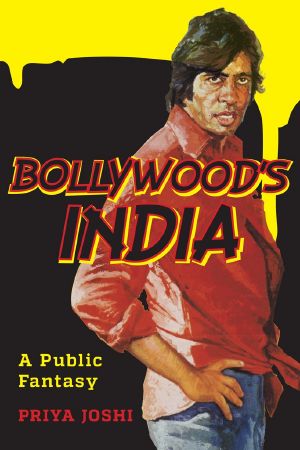Bollywood's India

- Authors
- Joshi, Priya
- Publisher
- Columbia University Press
- Tags
- art019000 , performing arts , film & video , history & criticism , per004030 , art , asian
- ISBN
- 9780231169608
- Date
- 2015
- Size
- 12.20 MB
- Lang
- en
In a work of dazzling interpretive virtuosity, Priya Joshi returns popular Hindi cinema to the 1970s when the term "Bollywood" was deployed to dismiss an unruly cultural product marked by its social responsiveness. Joshi analyzes the social work of popular Hindi blockbusters that, she argues, capture and challenge the diffuse aspirations of the nation. The "India" fabricated in Bollywood's blockbusters revises and contests nation and the state, commenting on an India both imagined and real. Familiar depictions of crime and punishment, family and individuality, vigilante and community, have persisted in the cinema across half a century despite dramatic changes in the industry's production and distribution practices. Summoning the 1970s as an interpretive lens, Joshi deftly examines blockbusters from notably tumultuous moments when the idea of India was made, unmade, and remade. From the decline of the studios in the 1950s to the rise of the multi-starrer genre in the 1970s and...
Analyzes the role of the cinema’s most popular blockbusters in making, unmaking, and remaking modern India
Bollywood is India's most popular entertainment and one of its most powerful social forces. Its blockbusters contest ideas about state formation, capture the nation's dispersed anxieties, and fabricate public fantasies of what constitutes "India." Written by an award-winning scholar of popular culture and postcolonial modernity, Bollywood's India analyzes the role of the cinema's most popular blockbusters in making, unmaking, and remaking modern India.
With dazzling interpretive virtuosity, Priya Joshi provides an interdisciplinary account of popular cinema as a space that filters politics and modernity for its viewers. Themes such as crime and punishment, family and individuality, vigilante and community capture the diffuse aspirations of an evolving nation. Summoning India's tumultuous 1970s as an interpretive lens, Joshi reveals the cinema's social work across decades that saw the decline of studios, the rise of the multi-starrer genre, and the arrival of corporate capital and new media platforms. In elegantly crafted studies of iconic and less familiar films, including Awara (1951), Ab Dilli Dur Nahin (1957), Deewaar (1975), Sholay (1975), Dil Se (1998), A Wednesday (2008), and 3 Idiots (2009), Joshi powerfully conveys the pleasures and politics of Bollywood blockbusters.